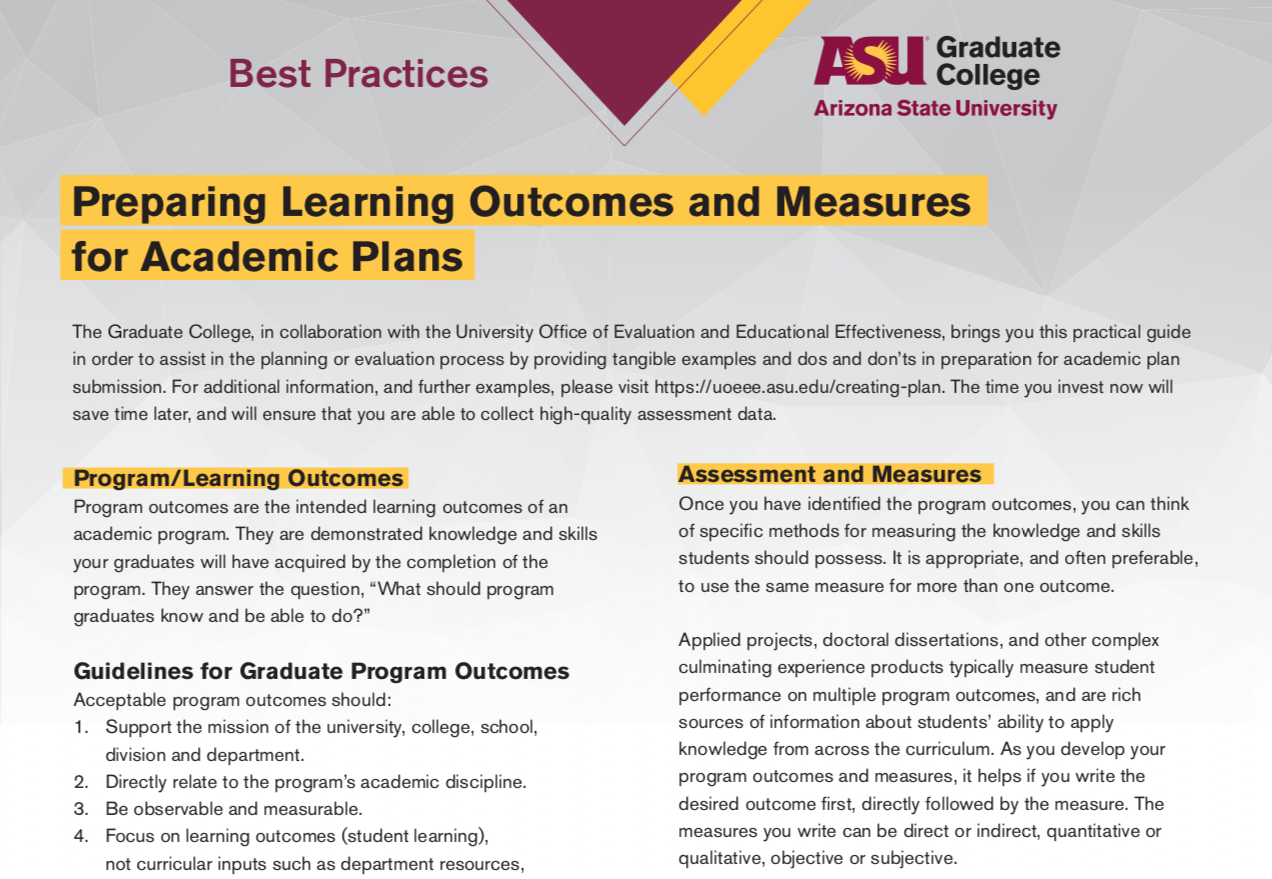
Best practice tips for preparing learning outcomes and measures for academic plans
These guidelines help ensure your plan is as clear and strategic as possible. The Graduate College and the University Office of Evaluation and Educational Effectiveness bring you this practical guide in order to assist you in the academic planning process by providing tangible examples and dos and don’ts of how to set your program outcomes and their measures.
More stories from the Graduate Insider

Graduate education is an adventure
About eighteen months ago, I set out on a journey walking the islands of the Dodecanese during a sailing trip in Türkiye and Greece with several friends. Along the way, I found winding paths, timeless villages and breathtaking views of sea and sky. That experience got me thinking about how adventure shows up in other parts of life, especially in learning.

Finding your flow: Managing the graduate writing process
Graduate writing can feel like a marathon—long, demanding, and full of unexpected detours. But as Tristan Rebe, Program Manager for the Graduate Writing Center, reminded students in the Grad15: Managing the Writing Process webinar, writing is not about perfection—it’s about progress. “The best dissertation is a done dissertation,” Rebe said, quoting Robert Frost: the best way out is through.
